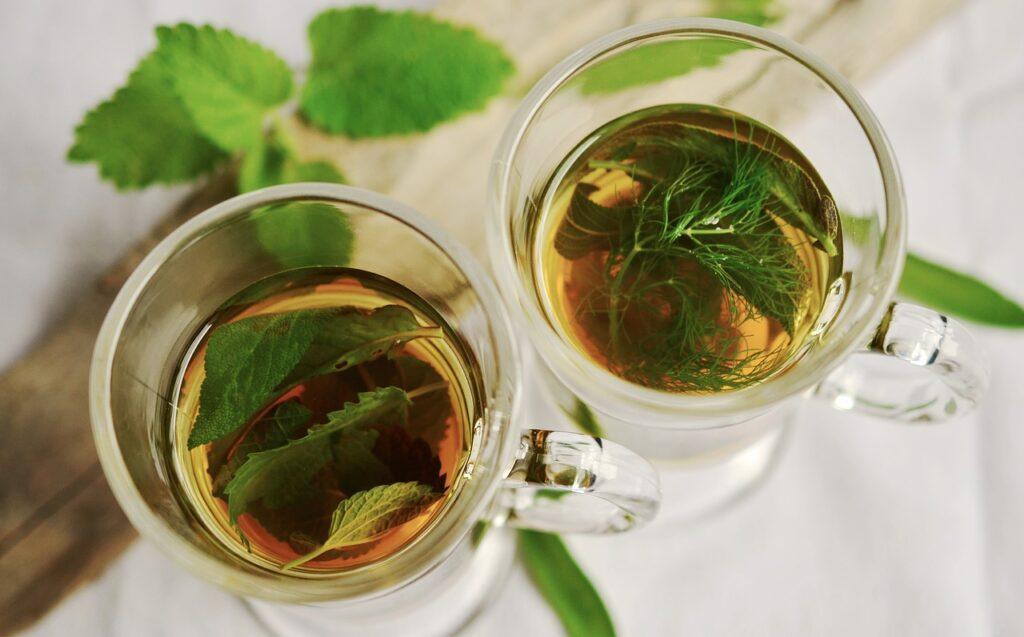One of the most common elements used in Ayurvedic medicine, known as Indian ginseng or winter cherry, Ashwagandha provides many health benefits for both men and women. It is known to help alleviate stress, anxiety, and depression symptoms while boosting energy levels and aiding with weight loss efforts.

What is Ayurvedic Medicine?
Ayurvedic medicine is perhaps one of the world’s oldest medical practices, but what exactly is it? Essentially, Ayurveda, a 5,000-year-old natural healing system, originated in India’s Vedic culture and is possibly one of the oldest healing sciences. Ayurvedic medicine has undoubtedly stood the test of time, consisting of prevention and treatment through living a healthy lifestyle that embraces natural healing herbs. Living a healthy lifestyle can help alleviate or prevent many health issues, including depression or heart disease.
Here are five remarkable benefits of the Ashwagandha herb that you should know about today!
1) Stress Reduction
Ashwagandha, an adaptogenic herb and one of India’s most famous natural healing herbs, is excellent for stress reduction.
What is adaptogenic? According to the National Institutes of Health, adaptogens are natural substances in herbal medicine that can help our bodies adapt to stress and exert a normalizing effect on bodily processes.

That’s because it balances cortisol levels in your body. Why is that important, you might ask. When cortisol levels rise over time, it can disrupt normal body functions. For example, this cortisol increase may lead to mood irregularity, headaches, memory lapses, rapid weight gain, and decreased sex drive. Also, cortisol
imbalances can increase the likelihood of heart disease by increasing visceral fat (a form of gel-like fat that wraps around major organs) in the body. As a result, so-called lifestyle diseases such as diabetes, blood pressure, and osteoporosis can manifest themselves.
Ashwagandha has also been proven effective in improving and supporting your adrenal function. This herb may help you overcome adrenal fatigue when your adrenals become overtaxed by stress.
What does adrenal fatigue look like on a typical day?
- When you wake up, you cannot function without a significant amount of caffeine.
- You finally feel a boost of energy during the early part of the day.
- Then your energy levels crash around 2 p.m., rise around 6 p.m., and fall again around 9 p.m.
- Your energy finally peaks again at 11 p.m.
If you are experiencing signs like these, you may be experiencing adrenal fatigue.
Ashwagandha is also helpful for anyone who struggles with sleep difficulties. To release the therapeutic compounds in ashwagandha root, put one tea bag into a small pot with one cup of water. After letting the water boil, reduce the heat, so it simmers for 10–15 minutes. If you drink a cup daily, keep in mind that you will need to cycle its use. What does that mean? If you drink a cup daily, do so for up to six months and then stop for three months before continuing again. If you use this tea casually, you don’t need to worry about this cycle. Many people find it helpful to combine it with chamomile tea, a flower-like herb with a sweet flavor.
Use these calming herbs to protect your mind and body against anxiety or insomnia. To make this soothing blend, simmer 1 tsp dried chamomile flowers in 1 cup of water. Remove from heat when bubbles form and steep for 10 minutes before straining into a mug and adding honey to taste (optional).

2) Fatigue Reduction
Here’s a fun fact; the Sanskrit word for “ashwagandha,” translates to “the smell of a horse,” (“ashwa” meaning horse and “gandha” meaning smell). So this potent herb earned its name because the plant’s root smells like a horse. However, today most forms of the herb do not carry that smell. Instead, ancient traditions imply that you’ll have “the vigor and strength of a stallion upon consuming it.” It also has a reputation for providing “the fertility of a horse,” a reference to its use as an aphrodisiac, supporting healthy sexual function for both men and women.
The ashwagandha herb has been revered for its dual capacity to energize and calm simultaneously. Maximizing the body’s ability to resist stress enables it to reserve and maintain vital energy during the day and at night, promoting sound, restful sleep. Stress is a significant factor in causing fatigue, often manifesting as “hyper” signs like agitation and difficulty sleeping. Ashwagandha can support a healthy nervous system by providing a nourishing yet energizing effect.
In addition, studies have shown that a few drops of the herb’s oil applied on the skin can help release toxins, improve skin quality, and protect from environmental factors. So if you’re feeling fatigued, try an ashwagandha tea or take some natural herbs such as milk thistle to increase your body’s ability to remove toxins.
3) Anxiety Relief
Natural healing herbs like Ashwagandha can offer a variety of benefits. From anti-anxiety relief to sleep aid, ashwagandha herb is sure to find a way to help you. For example, suppose you’re interested in exploring your anxiety and possible panic attacks. In that case, Ashwagandha may be just what you need to feel calm, relaxed, and happy again. In addition, the herb can be helpful for those suffering from obsessive or compulsive disorders or depression. Since there are different herb varieties, it’s hard to pinpoint which types work best for what situation. Still, it seems most types should provide natural relief from anxiety and other conditions mentioned above.
Ashwagandha tea is one drink that incorporates this potent herb into its recipe. Most brands will combine the leaves with peppermint and ginger for


taste. Peppermint is also known to promote relaxation, while ginger helps ease stomach distress. The ingredients combined with the natural healing properties of Ashwagandha make this herbal tea blend an excellent choice to naturally soothe some of your conditions. Remember from point #1 above that if you drink a cup daily, keep in mind that you will need to cycle its use. Cycling means you can drink one cup a day for up to six months and then stop drinking it altogether for at least three months. Then you should be fine if you consider returning to a daily routine. Along with drinking ashwagandha tea, people also use oils created from this herb on their skin and ingest it orally in pill form. We will discuss recommended dosages later in this post.
4) Anti-Cancer Properties
This herb contains several powerful phytochemicals. The most potent is “withanolides,” also called “steroidal lactones,” which is geek talk for “what makes things work.” It is the active ingredient responsible for Ashwagandha’s beneficial effects on the immune system, inflammation, and chronic skin diseases like psoriasis. Withaferin A is another chemical compound found in this herb, and it displays significant anti-cancer properties. Most notably in breast cancer and prostate cancer cells where it inhibits proliferation, reduces the spread and recurrence of tumors by preventing them from becoming metastatic, promotes programmed cell death or apoptosis, and causes tumor cells to die off by triggering a natural process called autophagy.

According to a scientific research team out of Cairo University, Egypt, studying the effects ashwagandha leaves have on cancer, they published their background statement and conclusion as follows.
Background: “Ashwagandha, a tropical herb used in Indian Ayurvedic medicine, has a long history of its health promoting and therapeutic effects. In the present study, we have investigated an anti-cancer activity in the water extract of Ashwagandha leaves (ASH-WEX).”
Conclusion: “We provide the first molecular evidence that the ASH-WEX and TEG have selective “cancer cell” growth arrest activity and hence may offer natural and economic resources for anti-cancer medicine.” See citation below.

There is a fair amount of scientific research into the ability of Ashwagandha to stimulate immune function against tumors. In one study, scientists found that lab mice treated with this herb before exposure to carcinogens developed significantly fewer tumors than untreated mice. Ashwagandha also protects healthy cells from damage
caused by chemotherapy drugs used in cancer treatment while enhancing their effectiveness. A study on Ashwagandha published in the “Journal of Pharmacology and Experimental Therapeutics” found something exciting. Researchers noted that rats given Ashwagandha before exposure to a poisonous substance had increased survival rates over those who hadn’t received this treatment.

